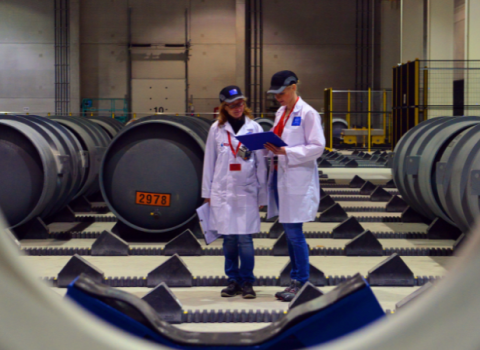Investing in research to develop new grid-wide methods of storing electricity and in carbon capture and storage should be a priority for governments with shrinking R&D budgets that want to meet the targets set out in the Paris agreement on climate change.
Laura Anadon of Cambridge University’s Department of Politics and International Studies and colleagues from the universities of Bocconi and Massachusetts Amherst, analysed a range of studies and expert reports on public energy R&D investments to pinpoint the current state of knowledge on cost-effective investments across a range of energy technologies.
Their report, published in the journal in Nature Energy, identifies those energy technologies that become more cost-effective, as either climate policy becomes more stringent, or R&D budgets tighten.
They say the right technology investments will help economies by reducing energy costs, or even creating new industries in some cases, at the same time as reducing the emissions that are damaging the environment.
“Innovation is the driver of most economies, and can help us address environmental threats such as climate change and local air pollution while reducing the costs to taxpayers. But figuring out where to invest dollars or euros to best spur innovation is difficult,” said Anadon.
Investing in new ways of storing electricity and capturing carbon should be increased because both allow for more flexibility in the energy system. Utility scale electricity storage allows for the integration of renewable energy sources into current national grid systems, overcoming the intermittent nature of power from renewable resources.
Carbon capture and storage also provides energy systems with greater flexibility, allowing the use of coal to continue while green alternatives are developed.
The researchers also found that funding solar power and advanced batteries for use electric vehicles should increase as R&D budgets decrease.
The research was published ahead of the second ministerial meeting of the Mission Innovation initiative in Beijing next month, which will discuss the future focus of energy technology investment.
Mission Innovation is a global initiative comprising of 22 countries and the European Union, which aims to “dramatically accelerate clean energy innovation”. As part of the initiative, launched at the Paris climate change conference in 2015, participants committed to doubling their clean energy R&D investments over five years.
“Climate change is a huge issue, but some governments are concerned that the cost of addressing it will be economic competitiveness. Investing in cutting-edge technologies that can cost-effectively reduce the health and environmental toll of current energy technologies, while at the same time help the economy by reducing energy costs is a win-win situation,” says coauthor Valentina Bossetti of Bocconi University.
Nature Energy: DOI: 10.1038/nenergy.2017.71





 A unique international forum for public research organisations and companies to connect their external engagement with strategic interests around their R&D system.
A unique international forum for public research organisations and companies to connect their external engagement with strategic interests around their R&D system.